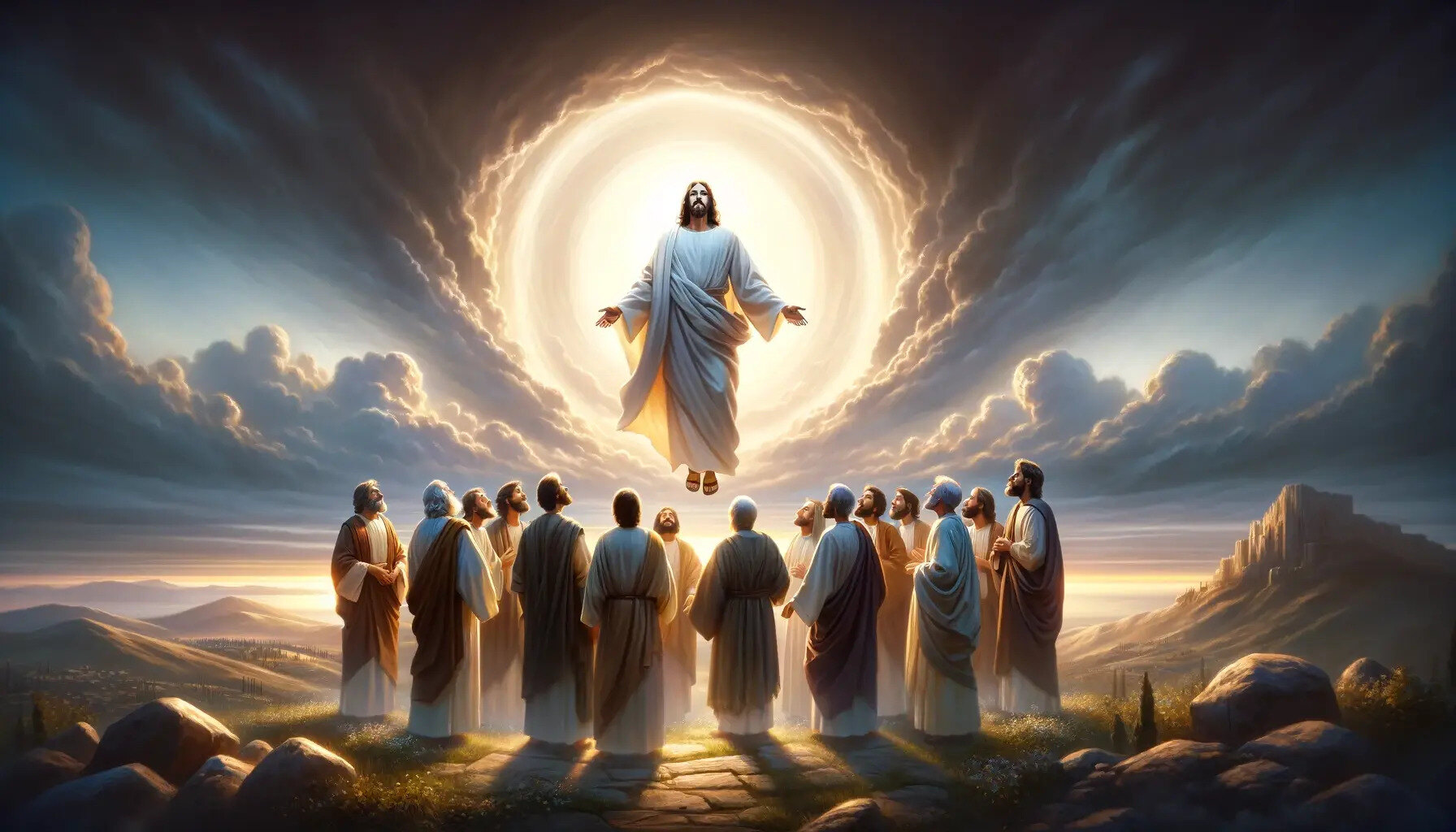
Did you know the Ascension of Jesus is celebrated 40 days after Easter? This event marks the moment Jesus was taken up to heaven in the presence of his apostles. It's a significant event in Christianity, symbolizing Jesus' return to God and the promise of the Holy Spirit. The Ascension is mentioned in the Bible, specifically in the books of Luke and Acts. But there's more to this story than meets the eye. From miraculous appearances to the symbolism behind the event, the Ascension is filled with fascinating details. Let's dive into 23 amazing facts about this pivotal moment in Christian history.
The Ascension of Jesus: A Significant Event
The Ascension of Jesus is a pivotal moment in Christian theology. It marks the end of Jesus' earthly ministry and his return to heaven. Here are some fascinating facts about this event.
-
The Ascension took place 40 days after Jesus' resurrection. This period allowed Jesus to appear to his disciples and others, proving his resurrection.
-
Jesus ascended from the Mount of Olives. This location, near Jerusalem, holds significant religious importance.
-
The event is described in the New Testament. Specifically, the books of Luke and Acts provide detailed accounts.
-
The Ascension is celebrated as a Christian holiday. Known as Ascension Day, it falls 40 days after Easter Sunday.
-
Jesus' ascension was witnessed by his disciples. They saw him taken up into a cloud, symbolizing his return to heaven.
Symbolism and Theological Significance
The Ascension carries deep symbolic and theological meanings. It signifies Jesus' exaltation and the completion of his earthly mission.
-
The cloud represents God's presence. In biblical tradition, clouds often symbolize divine presence and glory.
-
Jesus' ascension signifies his enthronement. It marks his return to a position of authority at the right hand of God.
-
The event fulfills Old Testament prophecies. Scriptures like Psalm 110:1 and Daniel 7:13-14 foreshadow the ascension.
-
It highlights the promise of the Holy Spirit. Jesus assured his disciples that the Holy Spirit would come after his departure.
-
The Ascension emphasizes Jesus' ongoing work. It signifies that Jesus continues to intercede for humanity in heaven.
Impact on Early Christianity
The Ascension had a profound impact on the early Christian community. It shaped their beliefs, practices, and understanding of Jesus' mission.
-
It reinforced the belief in Jesus' divinity. The ascension confirmed that Jesus was more than a prophet; he was the Son of God.
-
The event inspired the disciples' mission. Witnessing the ascension motivated them to spread Jesus' teachings.
-
It led to the establishment of the Church. The disciples' experiences and teachings formed the foundation of the Christian Church.
-
The Ascension influenced Christian liturgy. Early Christians incorporated the event into their worship and celebrations.
-
It provided hope and assurance. Believers found comfort in knowing that Jesus was in heaven, advocating for them.
Artistic Depictions of the Ascension
Throughout history, artists have depicted the Ascension in various forms. These artworks capture the event's spiritual and emotional significance.
-
Early Christian art often featured the Ascension. Catacombs and churches from the 4th century contain such depictions.
-
Renaissance artists created iconic Ascension paintings. Masters like Raphael and Titian produced renowned works on this theme.
-
The event is depicted in stained glass windows. Many churches feature intricate windows illustrating the Ascension.
-
Sculptures and reliefs also portray the Ascension. These three-dimensional artworks can be found in cathedrals and museums.
-
Modern art continues to explore the Ascension. Contemporary artists use various media to express its significance.
The Ascension in Different Christian Traditions
Different Christian denominations have unique perspectives and traditions related to the Ascension. These practices reflect the event's universal importance.
-
Eastern Orthodox Christians celebrate the Ascension with a feast. This includes special liturgies, hymns, and prayers.
-
Roman Catholics observe Ascension Thursday. It is a holy day of obligation, requiring attendance at Mass.
-
Protestant denominations also commemorate the Ascension. Services and sermons often focus on its theological implications.
Final Thoughts on the Ascension of Jesus
The Ascension of Jesus is a cornerstone of Christian belief, marking the moment Jesus rose to heaven after his resurrection. This event, celebrated 40 days after Easter, signifies Jesus' divine nature and his promise to return. It also highlights the importance of faith and the hope of eternal life. The Ascension is not just a historical event but a spiritual milestone that continues to inspire millions. Understanding these facts can deepen one's appreciation for this pivotal moment in Christian history. Whether you're a devout believer or just curious, the Ascension offers profound insights into the essence of faith and the promise of salvation. So, next time you think about Easter, remember the Ascension and its lasting impact on the world.
Was this page helpful?
Our commitment to delivering trustworthy and engaging content is at the heart of what we do. Each fact on our site is contributed by real users like you, bringing a wealth of diverse insights and information. To ensure the highest standards of accuracy and reliability, our dedicated editors meticulously review each submission. This process guarantees that the facts we share are not only fascinating but also credible. Trust in our commitment to quality and authenticity as you explore and learn with us.


